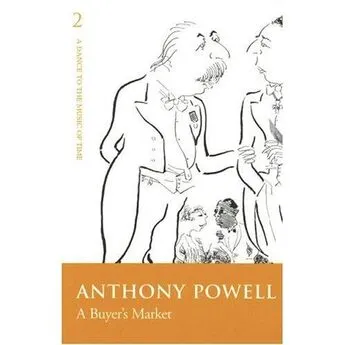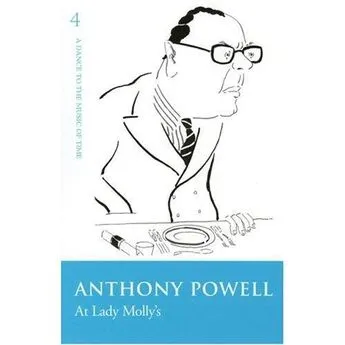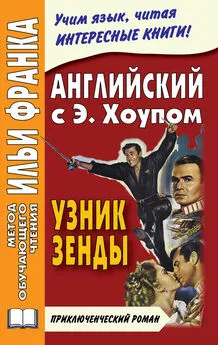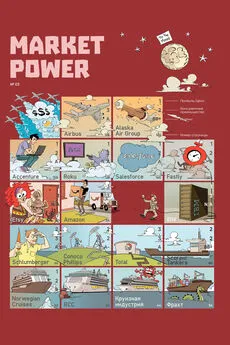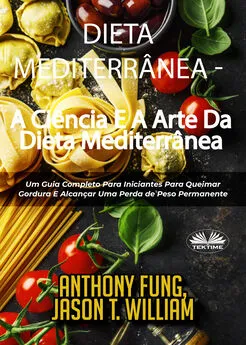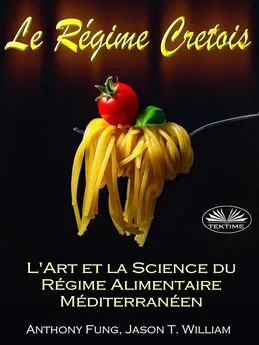Anthony Powell - A Buyers Market
- Название:A Buyers Market
- Автор:
- Жанр:
- Издательство:Arrow
- Год:2005
- ISBN:нет данных
- Рейтинг:
- Избранное:Добавить в избранное
-
Отзывы:
-
Ваша оценка:
Anthony Powell - A Buyers Market краткое содержание
Anthony Powell's universally acclaimed epic A Dance to the Music of Time offers a matchless panorama of twentieth-century London. Now, for the first time in decades, readers in the United States can read the books of Dance as they were originally published-as twelve individual novels-but with a twenty-first-century twist: they're available only as e-books. The second volume, A Buyer's Market (1952), finds young Nick Jenkins struggling to establish himself in London. Amid the fever of the 1920s, he attends formal dinners and wild parties; makes his first tentative forays into the worlds of art, culture, and bohemian life; and suffers his first disappointments in love. Old friends come and go, but the paths they once shared are rapidly diverging: Stringham is settling into a life of debauchery and drink, Templer is plunging into the world of business, and Widmerpool, though still a figure of out-of-place grotesquerie, remains unbowed, confident in his own importance and eventual success. A Buyer's Market is a striking portrait of the pleasures and anxieties of early adulthood, set against a backdrop of London life and culture at one of its most effervescent moments.
A Buyers Market - читать онлайн бесплатно полную версию (весь текст целиком)
Интервал:
Закладка:
“Is Prince Theodoric over for long?” asked Widmerpool, assuming an air of importance. “I understand he is here largely for economic reasons — I believe Donners-Brebner are considering big expansions in his country.”
“Base metals, for one thing,” said Tompsitt, with at least equal empressement . “There has also been talk of installing a railway to the coast. Am I right, Sir Gavin?”
At the phrase “base metals” there had passed over Archie Gilbert’s face perhaps the most imperceptible flicker of professional interest, that died down almost immediately as he turned once more to speak with Barbara of dance bands.
“No doubt about it,” said Sir Gavin. “I used to see a lot of Theodoric’s father when I was chargé d’affaires there. We often went fishing together.”
“Gavin was a great favourite with the old King,” said Lady Walpole-Wilson, as if it were a matter of mild surprise to her that her husband could be a favourite with anyone. “I am afraid Prince Theodoric’s brother is quite a different sort of person from their father. Do you remember that awkward incident when Janet was staying with us and how nice the King was?”
Sir Gavin glanced across the table at his wife, possibly apprehensive for a moment that she seemed inclined to particularise more precisely than might be desirable at the dinner table this contrast between father and son. Perhaps he did not wish to bring up the episode, whatever it had been, in which “Janet”—his sister — had been involved.
“Theodoric, on the other hand, is a serious young man,” he said. “A pity, really, that he is not King. The party given for him at their Legation was certainly dull enough — though personally I enjoy such jollifications as, for example, the court ball when our own King and Queen visited Berlin in 1913.”
“For the wedding of the Kaiser’s daughter?” Tompsitt asked, briskly.
“Princess Victoria Louise,” said Sir Gavin, nodding with approval at this scoring of a point by his satellite. “I went quite by chance, in place of Saltonstall, who—”
“Though, of course, it makes one feel quite ill to think of dancing with a German now,” said Lady Walpole-Wilson, anxiously.
She had taken the war hard.
“Do you really think so, Lady Walpole-Wilson?” said Widmerpool. “Now, you know, I can feel no prejudice against the Germans. None whatever. French policy, on the other hand, I regard at the moment as very mistaken. Positively disastrous, in fact.”
“They did the Torch Dance,” said Sir Gavin, not to be put off nostalgic reminiscences so easily. “The King and the Tsar danced, with the bride between them. A splendid sight. Ah, well, little we thought…”
“I loved the Swiss Guard when we were in Rome last winter,” said Miss Manasch. “And the Noble Guard were divine, too. We saw them at our audience.”
“But what a demoralising life for a young man,” said Lady Walpole-Wilson. “I am sure many of them must make unsuitable marriages.”
“I can just imagine myself checking a Papal Guardsman’s arms and equipment,” said Pardoe. “Sergeant-Major, this halbert is filthy.”
“I’d love to see you in those red and yellow and blue stripes, Johnny,” said Miss Manasch, with perhaps a touch of unfriendliness. “They’d suit you.”
Discussion as to whether or not ceremony was desirable lasted throughout the cutlets and ice. Lady Anne and Tompsitt were against pomp and circumstance; Eleanor and Widmerpool now found themselves on the same side in defending a reasonable degree of outward show. Tompsitt was rather pleased at the general agreement that he would go to pieces in the Tropics as a result of not changing for dinner, and certainly, so far as his evening clothes were concerned, he put his principles into practice.
“You should cart our Regimental Colour round,” said Pardoe. “Then you’d all know what heavy ceremonial means. It’s like a Salvation Army banner.”
“I’m always trying to get a decent Colour for the Guides,” said Eleanor, “and not have to carry about a thing like a child’s Union Jack. Not that anyone cares.”
“You won’t be too long, Gavin, will you?” said Lady Walpole-Wilson at this, hastily rising from the table.
By then I had only exchanged a word or two with Barbara, though this, in a way, was a mark of intimacy rather than because she had been unwilling to talk, or because any change had already consciously taken place in our relationship. Most of dinner she had spent telling Archie Gilbert rather a long story about some dance. Now she turned towards me, just before she went through the door, and gave one of those half-smiles that I associated with moments — infrequent moments — when she was not quite sure of herself: smiles which I found particularly hard to resist, because they seemed to show a less familiar, more mysterious side of her that noisiness and ragging were partly designed to conceal. On that occasion her look seemed to be intended perhaps to reconcile the fact that throughout the meal she had allowed me so little of her attention. Sir Gavin assured his wife that we would “not be long” in further occupation of the dining-room; and, when the door was closed, he moved the port in the direction of Pardoe.
“I hear you’re letting your shooting,” he remarked.
“Got to cut down somewhere,” said Pardoe. “That seemed as good a place as anywhere to begin.”
“Outgoings very heavy?”
“A lot of things to be brought up to date.”
The two of them settled down to discuss Shropshire coverts, with which Sir Gavin had some familiarity since his father-in-law, Lord Aberavon, had settled on the borders of that county during the latter part of his life; though the house had been sold at his death. Archie Gilbert, having successfully undertaken the operation of releasing the ladies from the room, returned to the chair next to mine. I asked who was giving the other dance that night.
“Mrs. Samson.”
“What will it be like?”
“Probably better than the Huntercombes’. Mrs. Samson has got Ambrose — though of course the band is not everything.”
“Are you going to Mrs. Samson’s.”
He gave the ghost of a smile at what he must have regarded as a question needlessly asked.
“I expect I shall look in.”
“Is it for Daphne?”
“For Cynthia, the youngest girl,” he said, with gentle reproof at the thoughtlessness once more shown in putting this inquiry, which betrayed an altogether insufficiently serious approach to the world of dances. “Daphne has been out for ages.”
On the other side of the table Widmerpool seemed, for some reason, determined to make a good impression on Tompsitt. Together they had begun to talk over the question of the Far East; Tompsitt treating Widmerpool’s views on that subject with more respect than I should have expected him to show.
“I see the Chinese marshals have announced their victory to the spirit of the late Dr. Sun Yat-sen,” Widmerpool was saying.
He spoke rather as if he had himself expected an invitation to the ceremony, but was prepared to overlook its omission on this occasion. Tompsitt, pursing his lips, rather in Widmerpool’s own manner, concurred that such solemn rites had indeed taken place.
“And the Nationalists have got to Pekin,” Widmerpool pursued.
“But who are the Nationalists?” asked Tompsitt, in a measured voice, gazing round the table with an air of quiet aggression. “Can anyone tell me that?”
Neither Archie Gilbert nor I ventured any attempt to clarify the confused situation in China; and not even Widmerpool seemed disposed to hazard any immediate interpretation of conflicting political aims there. There was a pause, at the end of which he said: “I dare say we shall have to consider tariff autonomy — with reservations, of course.”
Tompsitt nodded, biting his lip a trifle. Widmerpool’s face assumed a dramatic expression that made him look rather like a large fish moving swiftly through opaque water to devour a smaller one. Sir Gavin had begun to grow restive as scraps of this stimulating dialogue were wafted across to him, and he now abandoned the subject of Salopian pheasants in favour of trenchant examination of Celestial affairs.
“To speak of treaty-revision before China has put her house in order,” he announced rather slowly, between puffs of his cigarette, “is thought by some — having regard to the status quo —substantially to put the cart before the horse. The War-Lords—”
“A cousin of mine in the Coldstream went out last year,” Pardoe interrupted. “He said it wasn’t too bad.”
“Was that at Kowloon?” asked Widmerpool, speaking somewhat deferentially. “I hear, by the way, they are sending the Welsh Guards to Egypt instead of a Line regiment.”
“You spoke of treaty revision, Sir Gavin,” said Tompsitt, ignoring Widmerpool’s adumbrations on the incidence of the trooping season. “Now it seems to me that we should strike when the iron is hot. The iron has never been hotter than at this moment. There are certain facts we have got to face. For example—”
“Some of them were under canvas on the race-course,” said Pardoe. “Not that there were any starters, I should imagine.” And, presumably with a view to disposing finally of the Chinese question and turning to subjects of more local interest, he added: “You know, legalising the tote is going to make a big difference to racing.”
Sir Gavin looked dissatisfied with the turn taken by — or rather forced on — the conversation; possibly, in fact certainly, possessing further views on the international situation in the East which he was not unwilling to express. However, he must have decided that time did not allow any return to these matters, for he made, as it were, a mystic circle before himself in the air with the decanter, as if to show that the fate of China — and of racing too, for that matter — was in the lap of the gods.
“Nobody having any port,” he stated, rather than asked. “Then I suppose we shall be getting into trouble if we don’t make a move. Anyone for along the passage?”
“Yes,” said Tompsitt, setting off impatiently.
While we waited for him, Sir Gavin expatiated to Pardoe whom he seemed, for some reason, particularly to enjoy lecturing, on the advantages to be gained for the country by mustering young men of Tompsitt’s kind.
“Had the smooth type too long,” he remarked, shaking his head a number of times.
“Need something crisper these days, do we?” inquired Pardoe, who, standing on tiptoe, was straightening his white tie reflected in the glass of the barometer hanging under Boyhood of Cyrus .
“All very well a century ago to have a fellow who could do the polite to the local potentate,” explained Sir Gavin. “Something a bit more realistic required these days.”
“A chap who knows the man-in-the-street?”
Sir Gavin screwed his face into an expression calculated to convey that such was the answer.
“Where does he come from?” asked Pardoe, who did not seem absolutely convinced by these arguments, and still fiddled with his tie.
Sir Gavin seemed rather pleased by this question, which gave him further opportunity for stating uncompromisingly his confidence in Tompsitt’s almost congenital bona fides .
“Goodness knows where he comes from,” he affirmed vigorously. “Why should you or I be concerned with that — or any of us, for that matter? What we need is a man who can do the job.”
“I quite agree with you, sir,” said Widmerpool, breaking unexpectedly into this investigation. “Professionalism in diplomacy is bad enough, in all conscience, without restricting the range of the country’s diplomatic representation to a clique of prize pupils from a small group of older public schools.”
Читать дальшеИнтервал:
Закладка:
